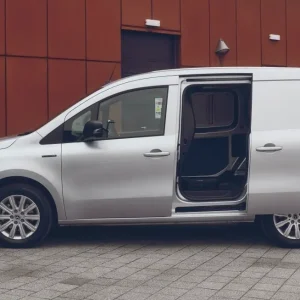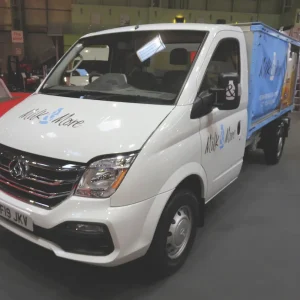Traditionally used for basic vehicle tracking, telematics has started to play an increasingly important role in fleets, enabling fleet managers to gain a clear insight through data into their drivers’ performance out on the road.
“The days when telematics provided only ‘track-and-trace’ functionality are long gone and although ‘Big Data’ became a bit of a buzz phrase, telematics is a clear example of how data can now be harnessed to incredible effect,” explains Beverley Wise, director UK & Ireland at TomTom Telematics.
Now or never
Ever since the industry realisation that telematics is a highly useful source of information the technology has evolved rapidly.
A recent Operational Fleet Insight Report produced by the AA and BT Fleet revealed that 74% of fleets containing 100-plus vehicles are now using telematics. While traditional telematics played an important role in retrospectively flagging poor and inefficient driving styles, providing fleet managers with ‘after-the-event’ information, telemetry is evolving to provide a more ‘real-time’ service.
Stuart Thomas, head of fleet services and SME at the AA, says: “Telematics is evolving at a rate at which it can now really make a difference and live monitoring and tracking via telematics allows fleet managers to give quick feedback on driving standards, resulting in fewer accidents, breakdowns and recoveries.”
Lightfoot is fitted to over 10,000 vehicles in the UK, and is a service that aims to change driving behaviour in real time. The result is a claimed reduction in fuel consumption, downtime and maintenance costs along with a significant reduction in the risk of being involved in a collision. Lightfoot’s managing director, Mark Roberts, explains: “Telematics can inform managers hours or even days later if the driver has done something wrong, which is difficult to learn from. However, real-time information and live in-cab driver feedback provide the key to effective and sustainable change, empowering drivers to improve their driving style.”
Routing and scheduling
It’s not just unsafe driving habits and harsh driving styles that are improved by the technology – telematics-based systems are now helping companies to run their fleets more efficiently and economically via better route planning, resulting in efficiency gains as well as safer working conditions for employees.
“The way van fleets operate is very different to car fleets so it is important to develop solutions that meet the specific needs of both,” explains TomTom’s Wise. “For example, routing, scheduling and job dispatch functionality are all more important to van fleets than they are to cars.”
Telematics can integrate with specialised routing and scheduling software so that up-to-date traffic data, historic journey times and GPS location can all be used to help develop smarter schedules.
Daily workflow can also be automatically optimised to help ensure each trip is carried out at the most suitable time of the day and new jobs are allocated to the most appropriate drivers. “Used alongside smart navigation, this helps to minimise time on the road, reduce mileage and boost productivity,” Wise continues.
Predictive maintenance
Telematics is also becoming vital when it comes to maintenance. The technology reads engine diagnostics codes to give fleet managers warning when a problem may be developing, enabling them to take a proactive approach by calling vehicles in before major issues develop. “When the telematics system is integrated with a leasing provider’s fleet management platform, this process can even happen automatically, says Wise. “This can take the burden off the fleet manager and driver while helping to reduce maintenance spend and vehicle-off-road (VOR) time.”
Rather than going through the service history of every vehicle on the fleet, managers can also use the technology to automatically alert them when a vehicle requires servicing or upgrades. “Journey-planning capabilities can then be applied to ensure the vehicle is serviced in the most convenient location, saving the fleet manager time and reducing the overall downtime,” explains Thomas from the AA.
The company now offers a breakdown and telematics service to fleets in conjunction with Trakm8, a leading supplier of telematics hardware. This enables the AA to collect and analyse data to determine the location, speed, fuel levels and condition of vehicles. “It also allows us to offer various services, from spotting when a battery is about to fail to recommending nearby fuel stations, which is vital when out on the job,” Thomas explains.
Caroline Hurst, marketing manager from Lytx, a provider of video telematics that can be used to reduce risk in fleets, explains: “Safe driving behaviour encouraged by telematics reduces the risk of bent metal, keeping the vans on the road and in operation. Downtime of any vehicles – for maintenance purposes or to make repairs – is costly for fleet operators, which is why predictive maintenance can be more cost-effective than emergency repairs.”
Rewarding good behavior
Lytx helps operators identify unsafe and inefficient driving behaviours in their fleet, coaches drivers to improve, reduces risk, and increases driver retention using video telematics. The result is customer-reported reductions of collision-related costs of up to 80%, it claims.
“Cultivating safer, more efficient drivers can help a fleet operator’s bottom line in many ways – from lowering insurance premiums and maintenance costs, to increasing employee retention, productivity, and fuel efficiency,” says Hurst.
Taking a real-life example, gas distribution company SGN put itself in a position to make savings of £1m in a year across its van fleet after implementing a driver behaviour programme underpinned by TomTom telematics. “By establishing performance benchmarks, scoring drivers and creating driver league tables, they established an environment where continuous improvement and healthy competition were the norm,” explains TomTom’s Wise.
At the same time, regular support and training was offered to drivers to ensure they were given the tools they needed to strive for higher standards. Idling was identified as a particular problem and by focussing on the issue and improving education to drivers, it was cut by 68%. Incidences of speeding were reduced by 15%, inefficient driving events cut by 24% and, through improved navigation and routing, mileage was reduced by 16%.
LCV operators believe the relationship they have with their drivers is key to the success of their fleet. But often the needs and aims of managers run at odds to those of drivers, and vice-versa, explains AA’s Thomas: “In the day-to-day running of a fleet, managers need to think about the aims of the business and balance this against the needs, preferences and welfare of their drivers, who are much more concerned with getting to their location on time and ensuring their vehicle is working effectively.”
Far from focusing on disciplining drivers, 33% of fleet managers use the technology to reduce accident rates, half are prioritising reducing unnecessary mileage and 29% are focusing on gathering evidence to reward their drivers, Thomas explains. “With this in mind, the AA is urging fleet managers to ensure they’re using telematics technology to its full potential, drilling down into the data to help colleagues mitigate risks.”
Often described as the ‘Fitbit for cars and vans’, Lightfoot rewards individuals for being better drivers through weekly awards and prizes, where all drivers achieving ‘Elite Driver’ status have the opportunity to win anything from weekend breaks to supercar track as Roberts explains: “Motivated by rewards for better driving, individuals not only have the means but also the incentive to become better, more efficient drivers.”
Operating in real time, Lightfoot fixes driver errors and encourages good driving habits such as smooth acceleration. It also helps reduce fuel costs, wear and tear on vehicles, harmful emissions and accidents. “On average, we’re reducing CO2 emissions in fleets by 10-20%, NOX emissions by 20%, and particulates by 15%,” says Roberts. “Lightfoot also helps to reduce accidents by up to 60%, which in turn helps fleets to cut their annual insurance premiums across their fleet. We also offer tracking as an option alongside detailed telematics data.”
TomTom is also rewarding drivers to make fleets more safe and efficient, and Wise says that telematics is at its most effective when the data is used as part of an over-arching programme for driver improvement. “Education and training can be targeted towards need, focusing on problem areas highlighted by the data, drivers can be regularly debriefed on performance and healthy competition can be encouraged as a way of raising standards,” she says.
Increasingly important
So why are these services so vital to van fleets? Van fleets aren’t heavily regulated in the way that trucks are, so Wise explains that the onus is on the operator to ensure their operations are in line with best practice: “In one sense, this would seem to suggest that technology such as telematics is less relevant, but those organisations who embrace the potential for change can steal a march on the competition.”
Of course, telematics is an incredibly broad term and covers extensive monitoring capabilities for van fleets. While journey planning and mileage capture are two of the more common, the geo-fencing and servicing elements can provide some great added value and time-saving abilities to van fleet managers who use them effectively, explains the AA’s Thomas.
“Those unexpected wins are often the element that really convinces a fleet manager of the benefits,” he says. “For example, we’ve seen one delivery business into London save a fortune on congestion zone fines. The drivers were not mentioning they had entered the congestion zone to the fleet manager and so he was paying the higher-rate fine. Using geo-fencing, he now receives an immediate alert and can pay the much lower daily charge. In this situation, as is often the case, connected car data acts as an enabler to further improve efficiencies within the wider business.”
What the future holds
While investing in telematics is becoming a crucial part of successful fleet management, Thomas doesn’t think it is realistic that all fleets will go ahead just yet. “I think for now it’s needs-based – some fleets with just two or three vans may not yet think they require route planning as the fleet is not of a big scale. For bigger fleets, however, they are now realising that the duty of care, deployment, journey planning and cost savings benefits that come from telematics are vital.
“I believe the uplift in telematics has allowed a duty of care to become not just workable, but an efficient and positive practice and believe this trend will continue alongside the growth in technology.” Looking even further ahead, TomTom’s Wise believes telematics will have an important role to play in the use of autonomous vehicles for business: “Developments in this area have the potential to help create entirely new business models, particularly for delivery businesses, many of which currently use LCVs.
“Use of autonomous vehicles will rely heavily on real-time data flow, including mapping, traffic, scheduling, order information, recipient ID, job instructions and more,” she continues. “With the right information, technological innovations have the potential to change the way we work, transform service delivery and bring about a big shift in the mobile workforce.”





